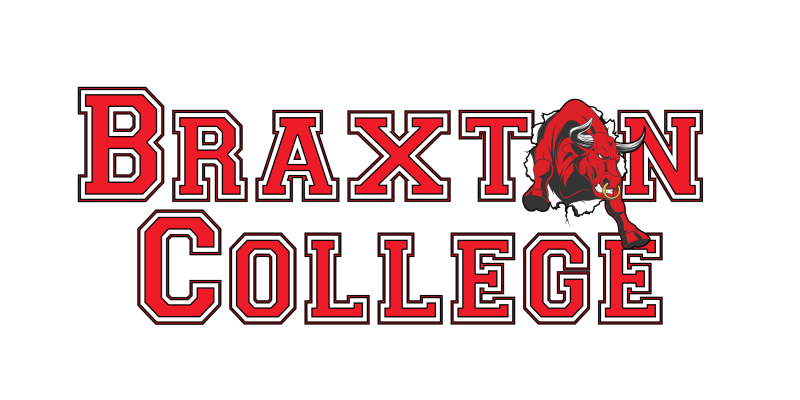FIREFIGHTERS
SUPPLEMENTAL COMPENSATION
PROGRAM
NOTE:
CLICK HERE, TO ACCESS THE FLORIDA FIREFIGHTERS SUPPLEMENTAL COMPENSATION PROGRAM INFORMATION AS A PDF FILE.
Definitions
“Degree applicable to fire department duties” means an associate degree or a bachelor’s degree in Fire Science, Emergency Management, Emergency Medical Services, Public Safety, Business Administration, Public Administration or other field of study that relates in a meaningful way to fire department duties included in the firefighter’s job description or another fire department position description that a firefighter is attempting to obtain. The determination of whether the degree relates in a meaningful way to fire department duties shall depend on the content of the individual courses and not solely on the title of the degree conferred. For degrees not included in the fields of study listed herein, the Fire Chief who approves an application for supplemental compensation must provide specific justification for concluding that the degree has specific value to their organization.
“Eligible Associate Degree” means an Associate of Arts or Associate of Science degree applicable to fire department duties conferred by a university or college.
“Eligible Bachelor’s Degree” means a bachelor’s degree applicable to fire department duties that was conferred by a:
(a) Regionally accredited university or college;
(b) Nationally accredited college or university that is in compliance with the following:
1. The school provides disclosures to prospective students on the school’s website and on student application or enrollment forms that are substantially similar to the following: Accreditation does not provide automatic acceptance by an institution of credit earned at another institution. Acceptance of students or graduates is always the prerogative of the receiving institution. For these reasons, besides ascertaining the accredited status of a school or program, students should take additional measures to determine, prior to enrollment, whether or not their educational goals will be met through attendance at a particular institution. These measures should include inquiries to institutions to which transfer might be desired;
2. The school verifies the identity of all students who participate in class or coursework, including all examinations, by using, at the option of the institution, methods such as:
a. A secure login and pass code;
b. Proctored examinations; or
c. New or other technologies and practices that are effective in verifying student identification; and
3. The school has an articulation agreement with at least one regionally accredited college or university that outlines transferable coursework into degree programs that are applicable to fire department duties to the regionally accredited college or university.
“Proctored examination” means an examination in which a credentialed organization, center or individual who is chosen by the student and approved by the university or college or an on-demand, third-party virtual proctor verifies student identity and supervises examination integrity.
“Nationally accredited” means a college or university currently accredited by one of the following national accrediting agencies recognized by the U.S. Department of Education:
(a) Accrediting Commission of Career Schools and Colleges;
(b) Accrediting Council for Independent Colleges and Schools;
(c) Distance Education and Training Council.
“Regionally accredited” means accredited by one of the following regional accrediting agencies recognized by the U.S. Department of Education:
(a) The Middle States Association of Colleges and Secondary Schools, Commission on Higher Education;
(b) The New England Association of Schools and Colleges, Commission on Institutions of Higher Education;
(c) The North Central Association of Colleges and Schools;
(d) The Northwest Commission on Colleges and Universities;
(e) The Southern Association of Colleges and Schools, Commission on Colleges; or
(f) Western Association of Schools and Colleges, Accrediting Commission for Senior Colleges and Universities or Accrediting Commission for Community and Junior Colleges.
“Supplemental Compensation” means funds that may be paid to eligible firefighters by employing agencies pursuant to Section 633.382, F.S., in addition to any regular compensation paid by the employing agencies.
Eligibility Requirements for Supplemental Compensation
To be eligible to receive Supplemental Compensation, the firefighter must:
Be certified as a firefighter pursuant to Section 633.35, F.S.;
Possess an eligible associate degree or eligible bachelor’s degree; and
Be employed full time as a firefighter by an employing agency.
Application for Eligibility Determination for Supplemental Compensation
To participate in the Firefighters Supplemental Compensation Program, a firefighter shall submit the:
Form DFS-K4-1057, “Application for Initial Entry,” which is incorporated by reference in Rule 69A-37.090, F.A.C., to the division for a determination of eligibility if the firefighter has not been previously determined eligible by the division to participate in the program. http://www.flrules.org/Gateway/reference.asp?No=Ref-01639.
Form DFS-K4-1442, “Application for Upgrade from Associate Level to Bachelor Level,” which is incorporated by reference in Rule 69A-37.090, F.A.C., to the division for a determination of eligibility if the firefighter was previously determined eligible by the division to participate in the program at the associate degree level. http://www.flrules.org/Gateway/reference.asp?No=Ref-01639.
Form DFS-K4-1056, “Application for Re-Entry,” which is incorporated by reference in Rule 69A-37.090, F.A.C., to the division for a determination of eligibility if the firefighter became ineligible for supplemental compensation under subsection 69A-37.085(3), F.A.C., but is no longer subject to any condition specified in that subsection. http://www.flrules.org/Gateway/reference.asp?No=Ref-01639.
Each application must be completed in full, signed by the applicant and fire chief for the employing agency or his or her authorized agent, and include each attachment required by the form.
The division will advise the applicant and employing agency of its determination of eligibility in writing.
Cessation of Supplemental Compensation
A firefighter shall become ineligible to receive Supplemental Compensation benefits under the following circumstances:
A firefighter shall not receive supplemental compensation for more than one degree. If the firefighter holds two or more eligible degrees of which one or more is an eligible bachelor’s degree, compensation will be paid for one eligible bachelor’s degree.
A firefighter is ineligible to receive supplemental compensation when the firefighter:
Is no longer employed by the employing agency;
Is transferred to a position for which the firefighter’s degree no longer qualifies him or her;
Is no longer employed in a full time capacity;
Takes a leave of absence without pay;
Is suspended without pay; or
Is no longer certified pursuant to Section 633.35, F.S.
If a firefighter becomes ineligible for supplemental compensation, the employing agency shall submit Form DFS-K4-1055, “Firefighters Supplemental Compensation Program Notice of Ineligibility,” which is incorporated by reference in Rule 69A-37.090, F.A.C., to the division within 10 business days after the date upon which ineligibility occurred. An employing agency shall not be reimbursed by the division for the payment of supplemental compensation to an ineligible firefighter on or after the date upon which ineligibility occurred. http://www.flrules.org/Gateway/reference.asp?No=Ref-01639.
Effective date of ineligibility shall be that date on which the firefighter ceases to receive compensation from the employing agency for performing the duties of a full-time firefighter.
It shall be the responsibility of the employing agency to notify the Bureau of Fire Standards and Training, prior to the next monthly disbursement of supplemental compensation funds, of any firefighters who are participating in the Supplemental Compensation Program and who become ineligible for any of the above circumstances.
Eligibility Requirements for Re-Entry
All provisions of rule 69A-37.085 must be met to be eligible for re-entry into the Supplemental Compensation Program.
Supplemental Compensation benefits must be reapplied for by submitting Form DFS-K4-1056, “Application for Re-Entry,” to the Bureau of Fire Standards and Training.
The Official Acceptance Notification Letter will be sent to the employing agency. This letter must be received before the firefighter’s name can be included on the Form DFS-K4-1065, “Firefighters Supplemental Compensation Program Quarterly”.
Quarterly Reporting
Each employing agency seeking reimbursement for supplemental compensation paid to firefighters pursuant to Section 633.382, F.S., and this rule shall submit quarterly reports to the division on March 31, June 30, September 30, and December 31 of each year on Form DFS-K4-1065, “Firefighters Supplemental Compensation Program Quarterly,” which is incorporated by reference in Rule 69A-47.090, F.A.C. http://www.flrules.org/Gateway/reference.asp?No=Ref-01639.
Every employing agency must maintain written records relating to the eligibility of every firefighter whose name is submitted to the division in separate files for a period of five years for audit purposes.




Because Braxton is institutionally accredited but not regionally or nationally accredited, would an AS in EMS from Braxton be covered by the Firefighters Supplemental Compensation Program?
Braxton is nationally Accredited, and the AS Degree graduates do receive supplemental compensation